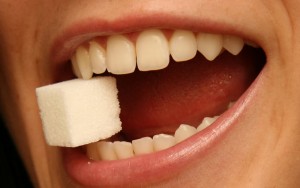
The role of a dental specialist is more than just looking into your mouth and routine cleaning. The mouth is a window to the body – a healthy mouth means a healthy body, and early detection starts with the mouth. With regular visits, the dentist should be able to detect early symptoms and if there be any irregularities (glucose readings), can refer patients to a medical doctor for further treatment. At the same time, dentists are able to provide advice and educate patients on oral hygiene maintenance and monitor patient’s overall oral health.
Diabetes can have a significant impact on the delivery of dental care. So what is a dentist’s role when treating diabetic patients?
Here are some precautions a diabetic patient can take for better management of the overall dental health:
- Control and maintain blood sugar levels through diet, medications and/ or insulin. Poorly controlled diabetic patients are at a high risk of developing oral complications.
- Keep a look out for dryness or white patches (oral fungal infections, such as oral thrush, which causes creamy, white lesions on tongue or inner cheeks) and oral lichen planus (chronic inflammatory skin condition that appears as white patches).
- Bleeding gums is also another area of concern as it often indicates infection. The best way to keep this under control is to visit a dentist on a regular basis.
- Always get full clearance (which includes ensuring blood sugar levels are within the suitable range, the type of diabetes, the severity, the medications used and the attending doctor) before commencement of any dental surgery. This is to minimise post-operative infection resulting from the procedure and/ or post-operative site not being able to heal properly.
- It is strongly recommended to maintain good oral hygiene by visiting the dentist once every six months as it will ensure that any infection is treated promptly before it escalates.
- Brush your teeth at least twice a day. Floss at least once a day. In the event that you use mouth rinse, choose alcohol-free mouth rinses as alcohol-based mouth rinses cause dry mouth. Read more about mouth rinses in our previous blog here.
- Smokers are encouraged to quit smoking as it will increase the risk of periodontal (gum) disease.
This brings us to another concern faced by diabetic patients and that is, can diabetic patients undergo dental treatment? There is generally no issue for diabetic patients to undergo any dental treatment; however, there are some of the things to take note if you are scheduled for a dental procedure:
- Opt for local anaesthesia. For anxious/ dental phobia patients, intravenous sedation can be considered.
- Try to arrange appointments in the morning as the glucose level is the highest in the morning and at the same time, there is low insulin activity. This will reduce hypoglycemic (low blood sugar) occurrence during any dental procedure.
- Ensure that the blood sugar levels are within the normal range prior to any commencement of dental procedure.
- It is recommended that patients have their dental treatment in or near a hospital setting where there are medical doctors available in case management of insulin shock is required.
- Always check with the dentist and medical doctor on post-operative management and diet instructions and adhere to them.
- Bring along your glucometer in case there is a need to check on glucose level prior and / or after a dental procedure.
One can still have healthy teeth and gums with careful management of diabetes and dental health. By having good oral health, we are not only doing our overall health a favour but also enhancing our quality of life, so visit a dentist soon.
Please subscribe to our blog for more interesting dental related topics or ‘Like’ our Facebook page for the latest updates on our team activities.





